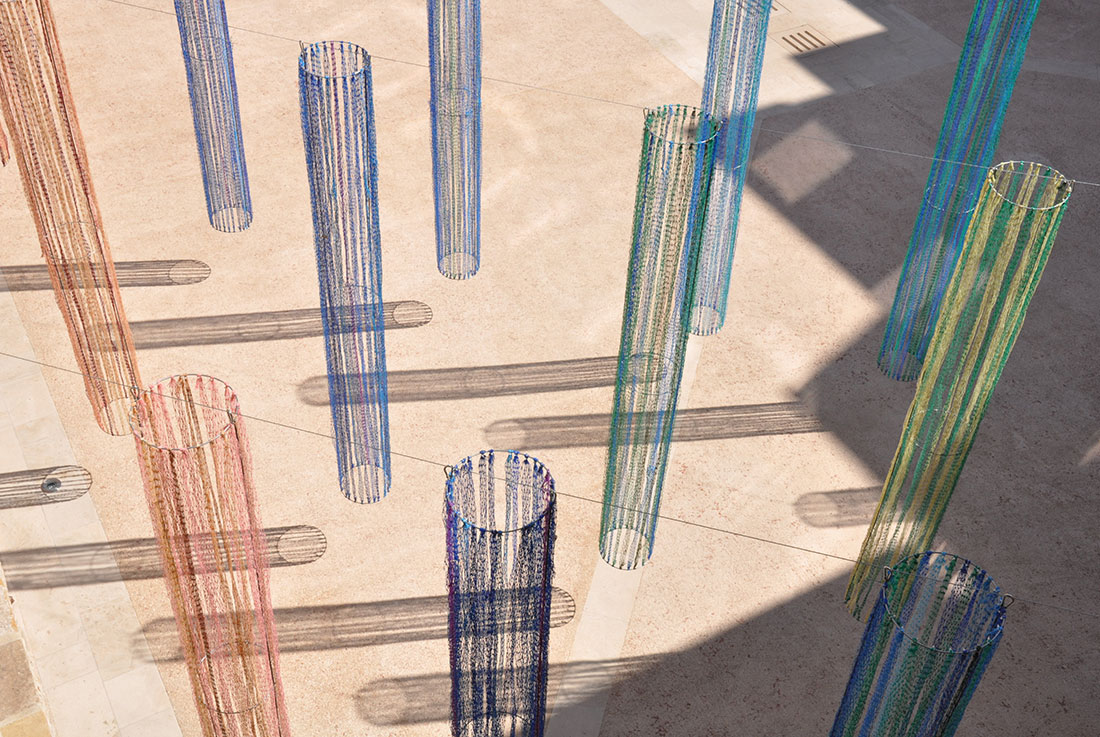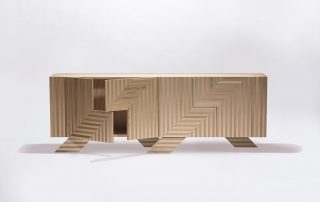A garden can grow from plastic net wastes. The idea is to transform the space of the renovated ancient Cloister of Sant’ Antonio Monastery through an artistic installation that claims a new environmental awareness.
Tradition and innovation come together through the reinterpretation of the typical plastic nets used in the mussels breeding. They are essential for the food production, but they are nowadays one of the most polluting waste along the coasts. Once the nets are used, they are often thrown into the see, transforming the seabed into a stifled plastic carpet.
Hortus Mytilus cries out this problem: starting from a waste material, it becomes an artistic work. A regular grid of columns punctuates the cloister space. The plastic nets, previously collected, cleaned and divided by colour are hang to metal structures. The sequence of these light tubes recalls the technique of the “zoche”, mussel farms; and floats in the air, creating a continuous play of transparencies.
Hortus Mytilus is an artificial garden that invites the visitors to cross, observe and play with it. A new symbolic public space, opened for the city of Taranto.
What makes this project one-of-a-kind?
The unique feature of the project is the material, the waste plastic nets, collected from the coasts and reused to create the installation. And the message of the art work: a new environmental awareness for the citizens of Taranto.
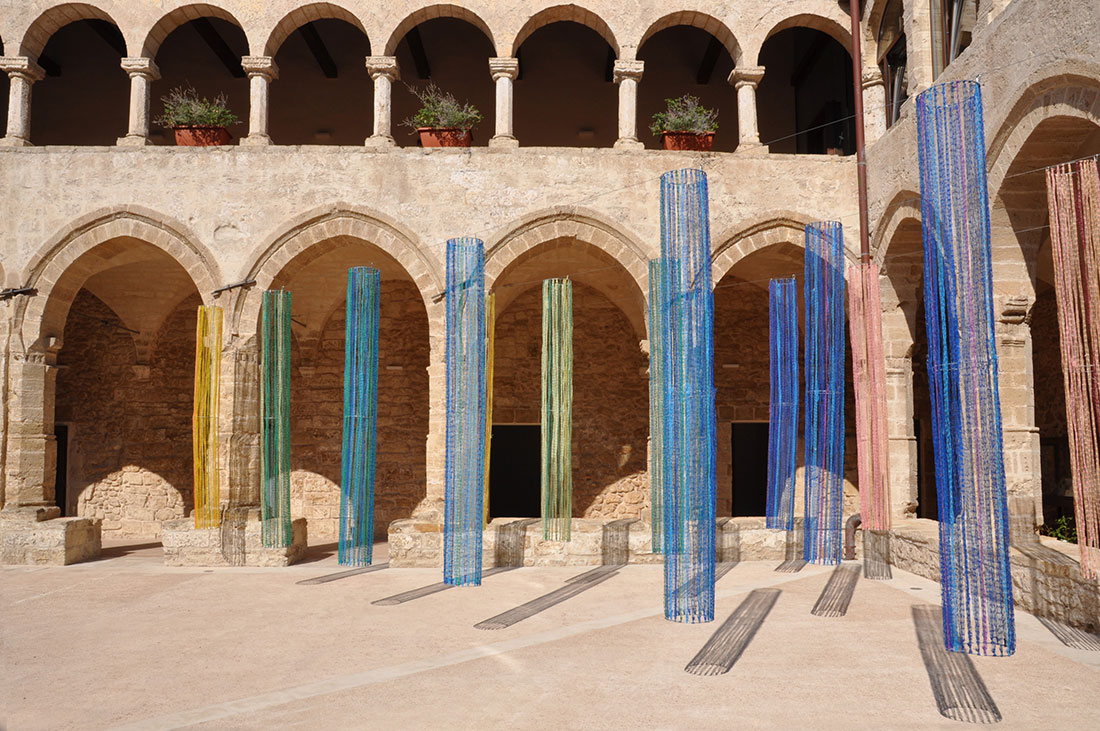
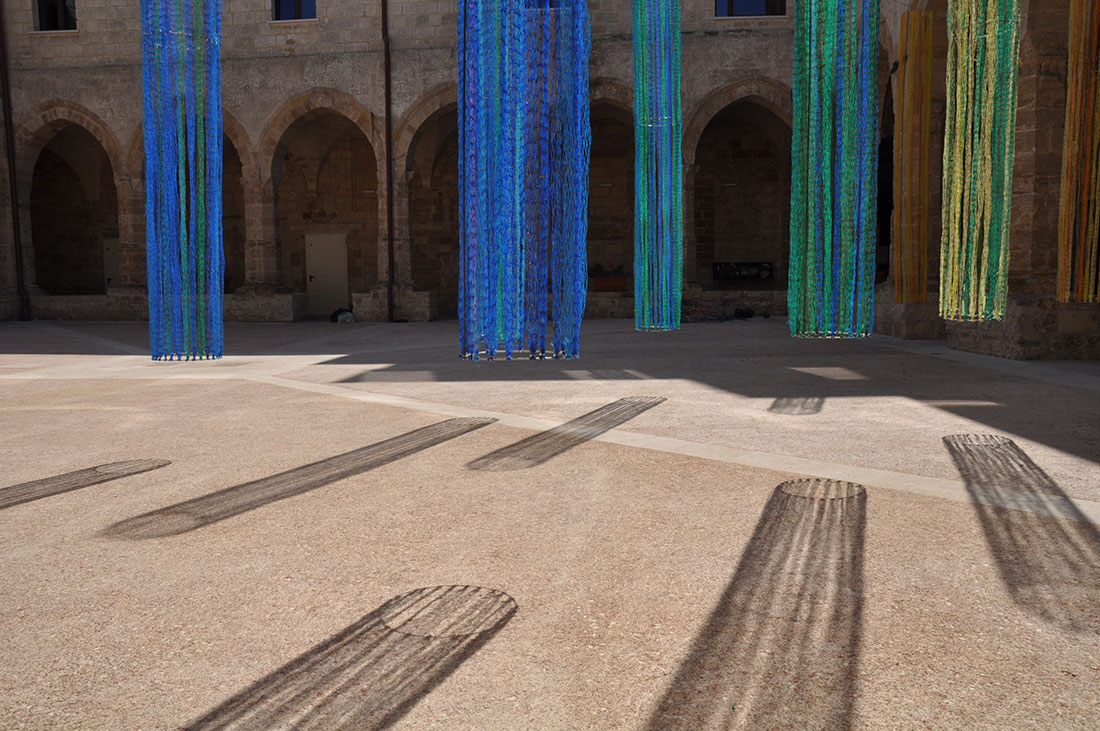
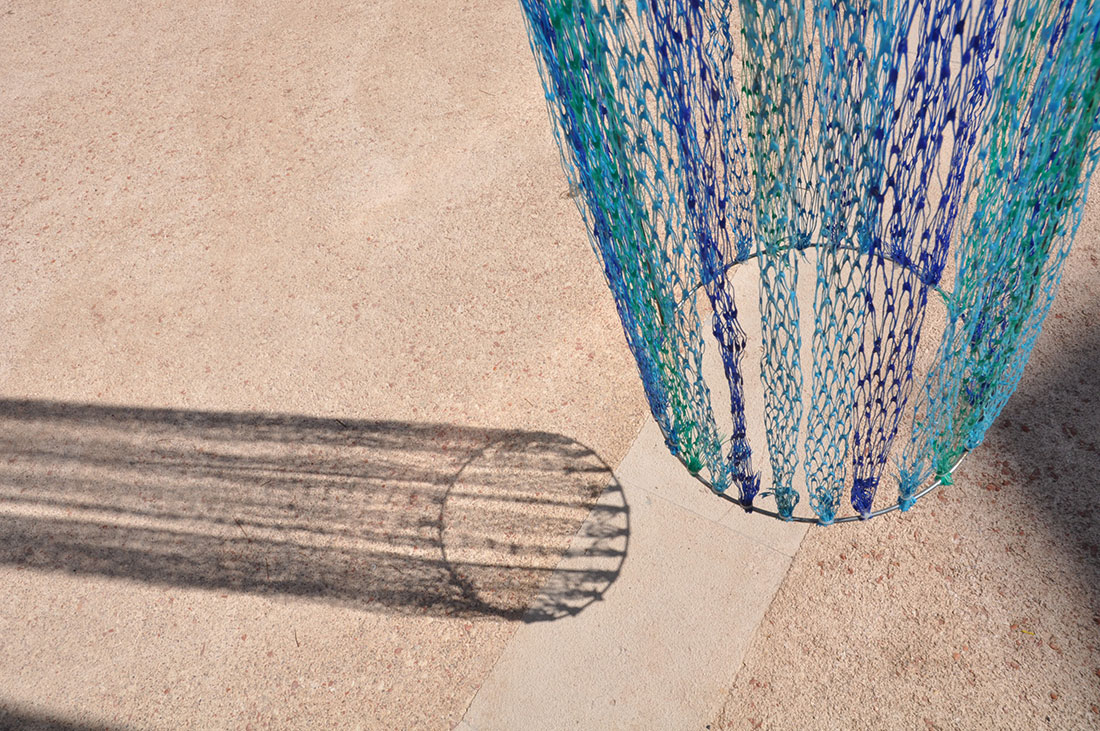
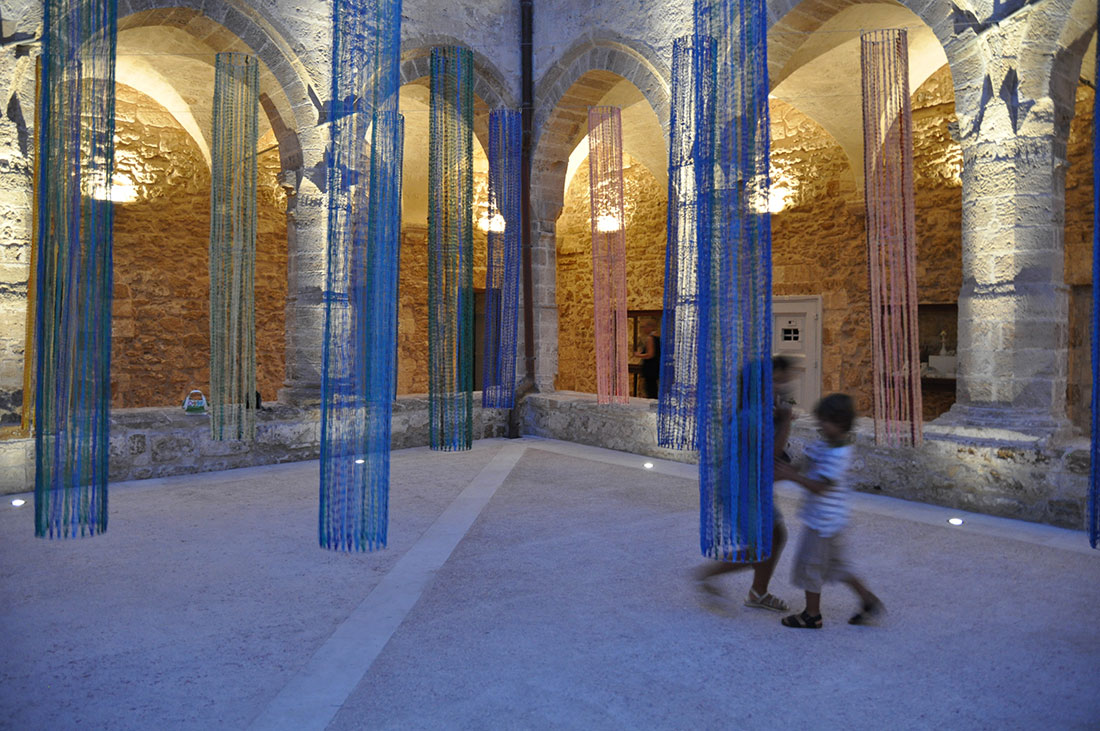
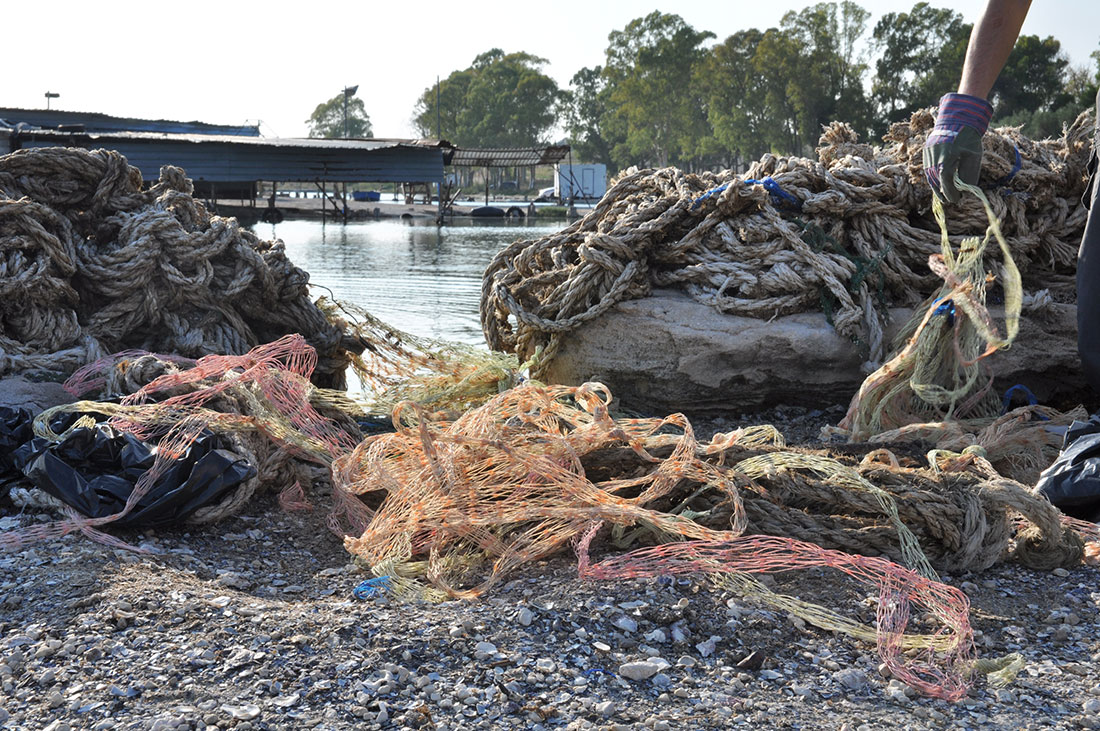
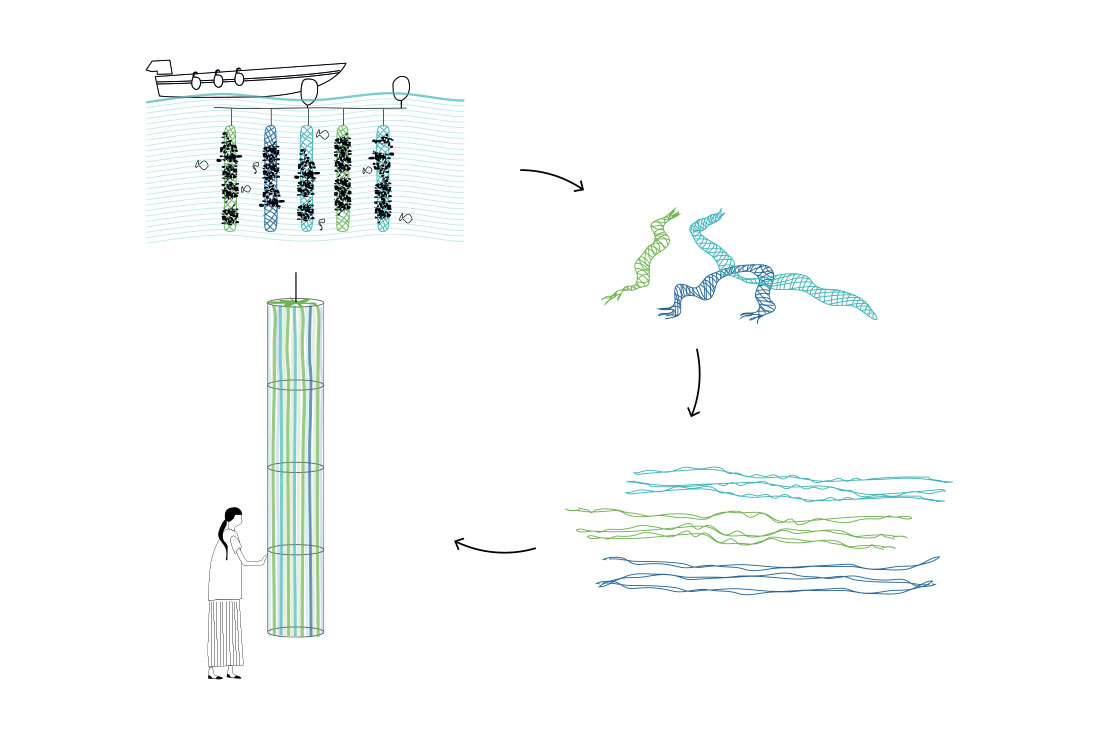
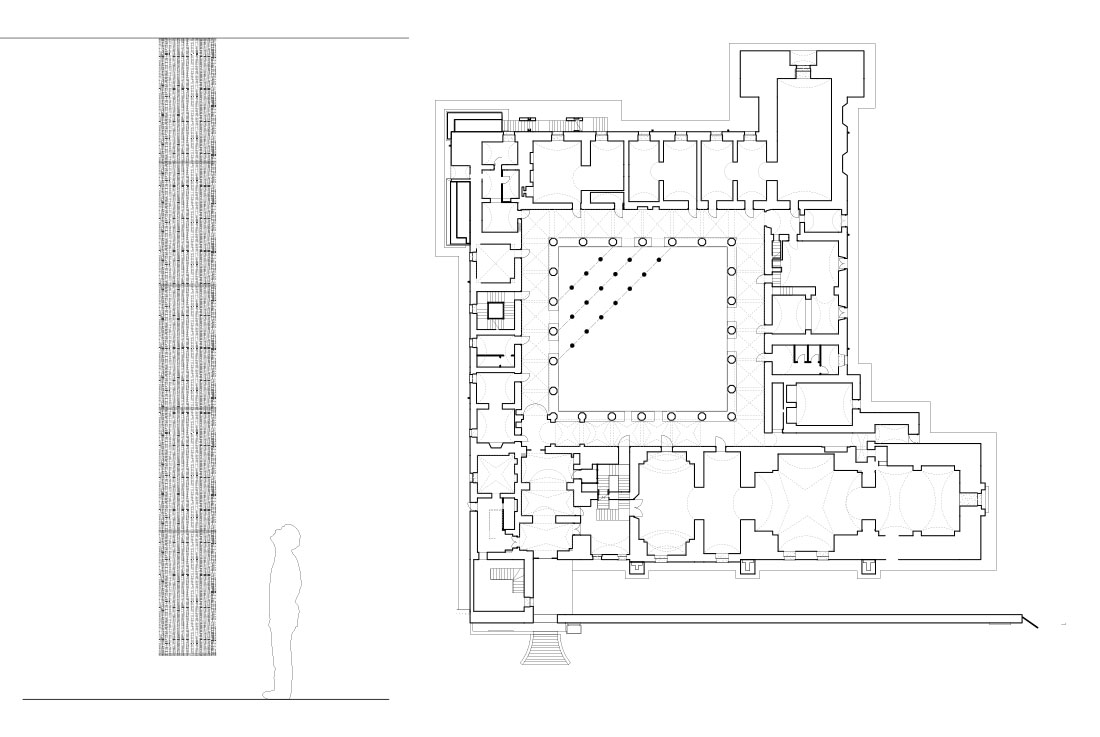
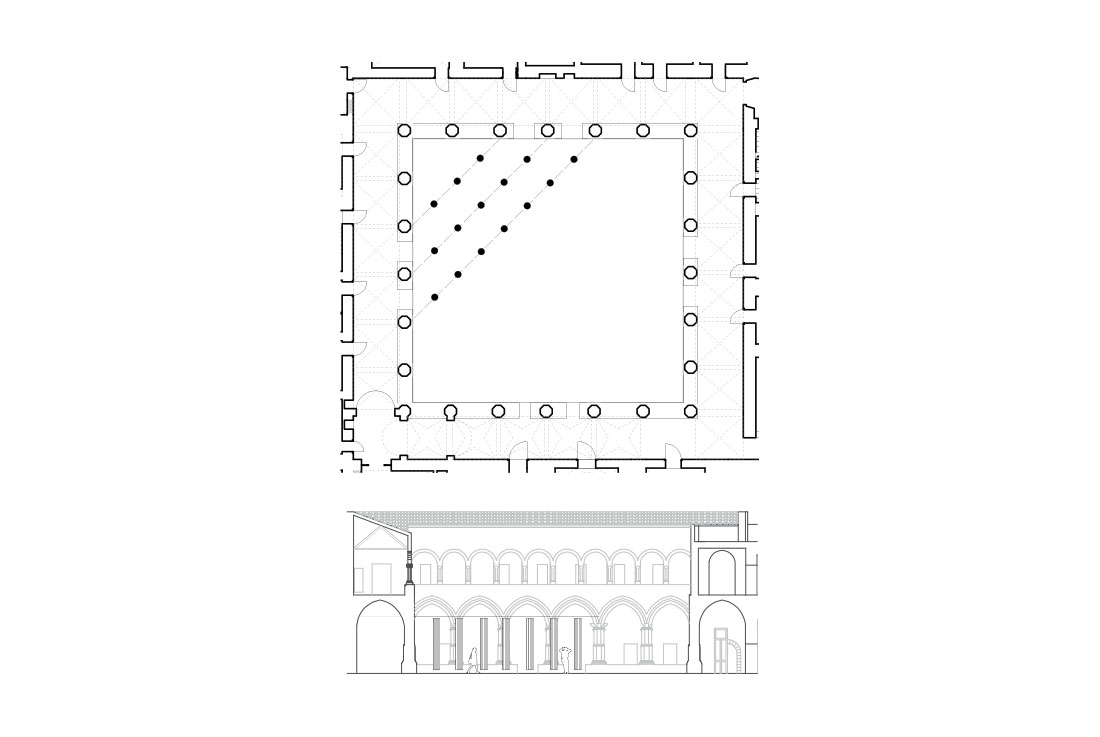

Credits
Authors
fabulism; Giulia Pozzi, Mirko Andolina & Aps Ammostro
Photos
fabulism
Year of completion
2018
Location
Taranto, Italy
Total area
320 m2
Project Partners
Hortus Mitylus is the winner of an artistic residency (Public Scape Taranto international competition) inside the European project Green Routes, financed by Fondazione Con il Sud. The organisation companies are: AUGEO, Taranto; ECCOM, Rome; Bocche del vento, Taranto; CE.FO.P. S.C. Maria Acclavio, Taranto; ZONA, Roma.


